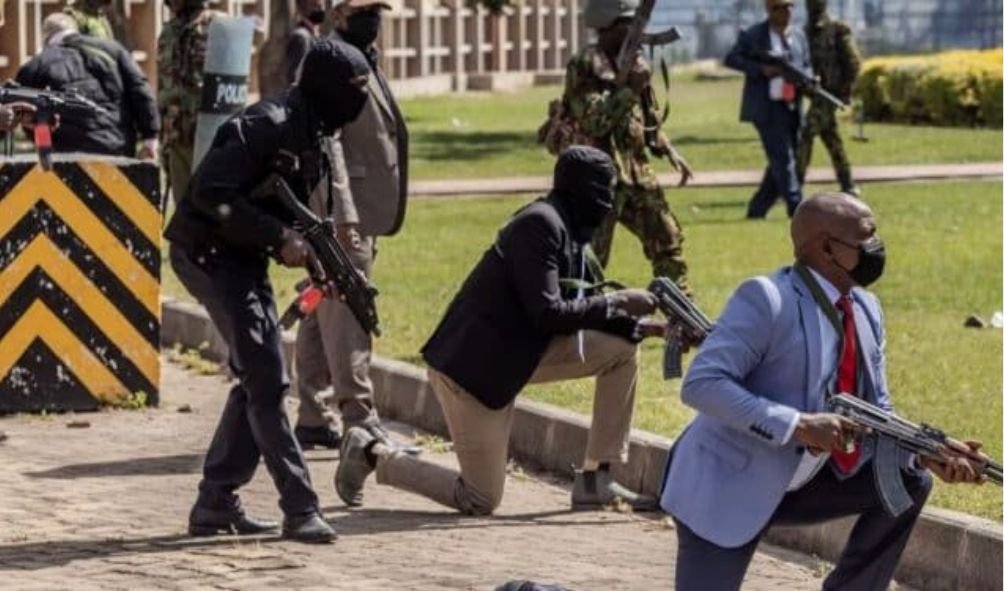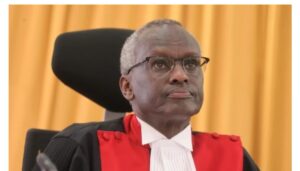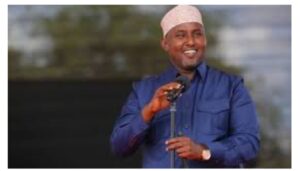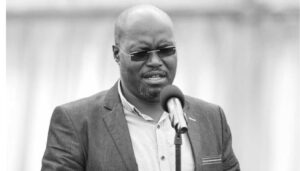Plainclothes police to continue operating in protests despite court ban, Charles Owino

Former police spokesperson Charles Owino claims plainclothes officer will continue operating in protests despite court ban
Former police spokesperson Charles Owino claims plainclothes officer will continue operating in protests despite court ban.
Kenyans will continue to see plainclothed police officers and unmarked vehicles in protests, despite a court ruling banning such practices, former police spokesperson Charles Owino revealed on Thursday.
The statement, delivered during an interview on Citizen TV, throws light on the practical challenges of implementing the recent court order.
In a ruling on Wednesday, High Court Judge Bahati Mwamuye ordered the Inspector General (IG) of the National Police Service to ensure that plainclothed officers do not mask their faces or obscure the identification of vehicles when dealing with protestors during demonstrations.
The order followed a petition filed by the Law Society of Kenya (LSK), which argued that the deployment of unidentified officers created a “chilling effect” on the right to demonstrate and made it impossible to hold officers accountable for their actions.
Owino, however, questioned the feasibility of such directives. “You cannot stop the Directorate of Criminal Investigations (DCI) from operating the way they are supposed to operate,” he stated, adding that it would be unreasonable to expect DCI officers, who traditionally operate covertly, to start wearing uniforms or using government-marked vehicles.
The former police spokesperson emphasised that the use of civilian vehicles by DCI officers is standard procedure. “You cannot ask them to have GK vehicles, they don’t have. They are using unmarked vehicles. Not actually unmarked, but civilian plate vehicles,” Owino asserted, highlighting the operational norms of the DCI.
Owino’s remarks point to a deeper conflict between the judiciary’s push for transparency and accountability and the police’s operational realities.
“DCI officers don’t operate in uniform. They’ll still operate in unmarked vehicles. That is the standard procedure. So I don’t know how that would be affected,” he asserted, alluding to the practical difficulties in enforcing the court’s orders.
He further elaborated on the necessity of DCI involvement in managing protests, particularly when there is a risk of criminal elements infiltrating peaceful demonstrations.
“There were complaints that there were criminals who entrenched into the peaceful demonstrators. If there are criminals entrenched, then it calls for DCI officers to get involved in supporting the persons managing riots,” Owino explained.
In such scenarios, he argued, DCI officers must be allowed to operate as they usually do—covertly and in unmarked vehicles.
While the court’s order aims to prevent abuses of power and protect citizens’ rights, Owino suggested that certain aspects of police work, such as the use of tear gas masks and operational uniforms, might make compliance with these directives difficult.
“Because of tear gas, sometimes police officers put on tear gas masks because they get so much involved. But there’s nothing wrong with police officers putting on name tags,” he acknowledged.
WHO declares Mpox a global public health emergency
EPRA announces fuel prices for next month
Senate rejects committee in Gov Mwangaza impeachment motion
Chaos as ODM youth groups clash over leadership positions
Ruto issues way forward after revoking university fee letters
Outrage as 68-year-old deaf woman is raped and killed in Homabay
Oscar Sudi renews attacks on DP Gachagua
However, he also noted that during operations, officers often wear jungle uniforms, which are not designed to carry name tags.
Owino did concede that the court’s concern might stem from incidents where police officers, particularly those involved in abductions, acted outside the law. Kenya National Human Rights Commission (KNHCR) has recorded at least 34 abductions and 61 deaths since the protests began in June.
“Maybe that is what is prompting somebody to go to court and police to give such orders,” he mused, hinting at the broader context of police misconduct that has plagued the country in recent years.
The debate over the role and appearance of police officers during demonstrations is not new in Kenya. The LSK, through advocate Dudley Ochiel, had argued that the presence of unidentified officers often leads to excessive use of force, as these officers are not held accountable for their actions.
“These unidentified officers cannot be held accountable for their actions. As a result, they end up using excessive force,” Ochiel told the court, urging for more transparency in police operations.
Also read,
Police boss promotes Beatrice Chebet after winning 2 gold medals in Paris Olympics
Uhuru dismisses Raila claim that he asked him to reach out to Ruto
UK issues travel advisory against Kenya
Francis Atwoli warns CS Mbadi after meeting IMF representative
High Court bars plainclothes police from covering their faces
Follow us





